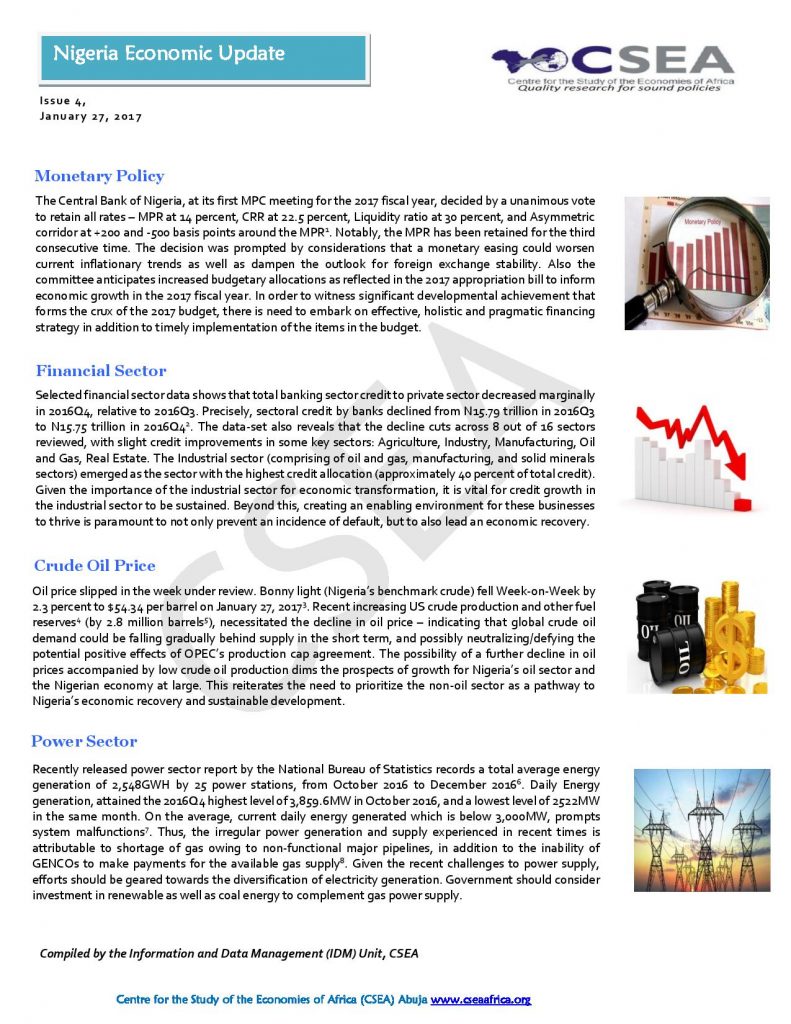Macroeconomic Report & Economic Updates

February 3, 2017
Nigeria Economic Update (Issue 4)
Recently released power sector report by the
National Bureau of Statistics records a total average energy generation of 2,548GWH
by 25 power stations, from October 2016 to December 2016. Daily
Energy generation, attained the 2016Q4 highest level of 3,859.6MW in October
2016, and a lowest level of 2522MW in the same month. On the average, current
daily energy generated which is below 3,000MW, prompts system malfunctions.
Thus, the irregular power generation and supply experienced in recent times is
attributable to shortage of gas owing to non-functional major pipelines, in
addition to the inability of GENCOs to make payments for the available gas
supply. Given the recent challenges to power supply, efforts should
be geared towards the diversification of electricity generation. Government
should consider investment in renewable as well as coal energy to complement
gas power supply.
